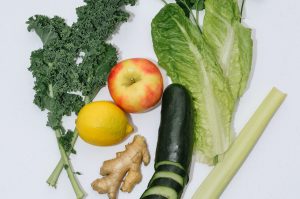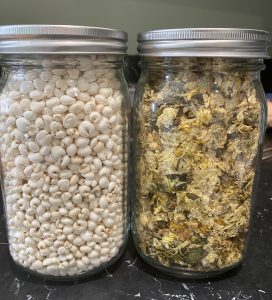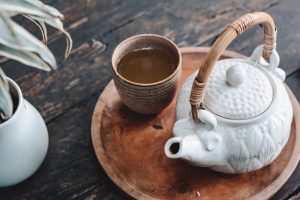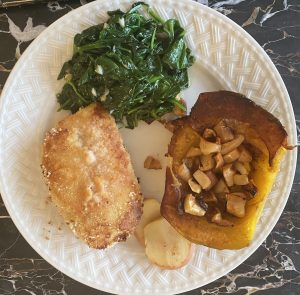Diet
The Importance of Bland, Sour, & Bitter Foods
 There are three flavors that are resoundingly unrepresented in the typical, daily, western diet, whose void is arguably part of the cause of our leading all first world nations in major disease. Sour foods, bitter, and bland foods all induce important healing mechanisms in the body that can only be fully understood through Chinese herbal medicine.
There are three flavors that are resoundingly unrepresented in the typical, daily, western diet, whose void is arguably part of the cause of our leading all first world nations in major disease. Sour foods, bitter, and bland foods all induce important healing mechanisms in the body that can only be fully understood through Chinese herbal medicine.
Sour foods have an astringent effect, which makes it very curious why so many Americans drink lemon water or tea when they have a cold or virus, which we want to do anything but astringe. From our perspective foods like lemon, pickles, (apple cider) vinegar, and sauerkraut might be great for improving immune function to prevent contracting colds, but once we are sick, acrid foods such as cinnamon, ginger, and garlic are more advisable.
Sour foods help to conserve (by astringing) the body’s cellular energy and healthy fluids. If we are completely burnt out, or experiencing symptoms such as muscle cramps, or getting a second wind late at night that prevents a healthy bedtime, these might all be requests from our body for more astringing of resources. Personally, I enjoy lemon water, or sprinkling it on kale, broccoli, and/or asparagus. Tomatoes are great this time of year and sauerkraut is especially balancing with spicy foods. Since the spice will naturally bring fluids up and out, we can use the kraut to counteract this effect and keep nutrients inside. Of course, sauerkraut is generally taken raw, so it is important to eat in conjunction with cooked foods or hot tea to fully digest.
The bitter flavor must be hands down the most unpopular in America, and the reason I figure it to be healthy is because my 2-year-old hates it more than anything—while obviously preferring sweet to anything. In Chinese medicine the bitter flavor clears heat (or inflammation) from the body, which is especially important for the next two months of the year. Scutellariae root clears heat from the lungs, Coptis root from the microbiome, and phellodendron from the urogenital microbiome.
These make up the “three yellows,” and if I’ve ever put them in your herbal formula you’ve likely complained to me the following week. Instead, regular consumption of unsweetened green and/or dandelion tea, most leafy greens, and cabbage can help to mature your palette all while reducing the kind of systemic inflammation that tends to rise eventually into the chest or central nervous system later in life. If you must have sweets after dinner, do so with either hot dandelion or barley tea to counter their effect.
The bland flavor is the toughest for me, because like most people with “damp heat” internal body types, I love spices and flavors, and especially love cooking vegetables in a way that is delicious and not so boring. But while there is a time and place for culinary creativity and indulgence, plain steamed vegetables were a staple in the diets of most human beings for centuries prior, which happened to be centuries of much fewer diseases. Sure, people weren’t living as long, but chronic illness in 40-year-olds was much rarer than it is today.
Poria mushroom is one of our most commonly used bland herbs for draining dampness from the gastrointestinal and urogenital microbiomes. Its bland flavor helps to modulate urinary function and reduce pathogenic fluid retention, and by doing so it has the additionally desirable side effect of calming our minds and spirit. How does this work? By reducing the proverbial internal traffic jams of unwanted fluids, our healthy fluids can then more easily circulate up to and from the central nervous system without diversion or congestion. If spicy foods ramp us up, it should be pretty deductive that bland will calm us, and who couldn’t use more calm?
One idea to incorporate this all into a meal is steamed or boiled broccoli (dress with olive oil if you like), sauteed leafy greens with garlic, salt, and pepper, any tofu or animal protein prepared to taste, and a glass of lemon water, and/or sauerkraut on the side; followed by a hot cup of dandelion or barley tea, with honey if you must.
Counteract Summer Heat With Chinese Herbal Teas

In spite of thus far boasting minimal over-heated days that inspire associations of barbecues and the beach, Summer is upon us
At home we joined our community pool, which is supposedly very popular and only a short walk from our home, but are yet to throw the baby in, as the only days that temperature might have permitted have been of coinciding rainstorms. The humidity just recently arrived, which for me is a bit of an ironic breath of fresh air, as a New York (New Jersey) summer sans the dense filth of 90-degree oppression on train platforms would resonate as just another bittersweet symptom of global warming.
Chinese Medicine appropriately labels this as “damp heat,” a very serious pathogen that genetically applies to yours truly and is nothing to be snoozed at. When dampness, or pathogenic body fluids mix with inflammatory heat they form an often impenetrable pathogen the Chinese label as “phlegm,” and “the cause of 1000 diseases.”
“Phlegm” in our medicine refers to not only that of the lungs and sinuses, but also the plaques that create arteriosclerosis, polyps, Alzheimer’s Disease, fatty liver, and I suppose about 1000 more illnesses. If someone is genetically susceptible to heat, left untreated their own dampness will inevitably transform into “damp heat” and become that much more difficult to resolve. Think many cases of autoimmune disease, cancers, and diagnoses of similar gravities.
Typically, the American trademarks of summer are in direct opposition to Eastern Medicine’s advice for mitigating the side effects of the external damp heat. Red meat and barbecue are sources of damp heat, as is alcohol—especially beer—spicy foods, or shellfish. As one of a family of many gout sufferers I must pick my spot wisely to indulge in one of my favorite summertime meals, oysters and some snobby, local IPA. At the least I always attempt to resolve such indulgences’ side effects on their backends.
More cooling foods and drinks that should be ingested liberally include watermelon, cucumber, celery (or celery juice), lemon, radishes, and of course chamomile or mint teas. Other recommended food grade medicinal teas are ju hua (chrsyanthemum flower) and yi yi ren (job’s tears/pearl barley), both of which should be available at any Asian market.
While the former is great for clearing heat in the upper portion of the body—think possibly headaches, summer dizziness, styes, and any issues of redness around the eyes—the latter is directed more to the intestines and urogenital microbiome. This time of year people are more prone to hyperhidrosis below the belt, swelling of the limbs, UTI’s, hemorrhoids, or stickier stools. If you wish to live in accord with the season and do better than low-quality store-bought herbal teas, I recommend getting these ingredients for tea at home.
30 grams of job’s tears + 10 grams chrysanthemum + 8 cups of water.
Boil and simmer for 40 minutes, drain out the herbs, and drink the slightly bitter, earthy tea. If you cannot measure grams and/or want to make a full pitcher for the week it’s fine to eyeball the measurements, simply aiming for a 3:1 ratio of job’s tears to chrysanthemum. In Chinese Medicine the bitter flavor is indispensable at clearing heat from the body, and recommended that westerners acclimate our palettes to it.
Finally, each season brings its own recommendations around our circadian rhythms. Summer corresponds with the fire element, which corresponds with the heart organ. The hours assigned to the heart are 11am-1pm, which for the next few months makes this an optimum time for 15-30 minutes of rest and relaxation. I realize most people, myself included, are usually quite busy at this time, but whenever possible it is ideal for heart health to take a pause, to close our eyes, lie down for a short meditation, and/or book your acupuncture visits accordingly (this from one of my most respected teachers, Dr. Henry McCann).
Please don’t get me wrong. The experience summer barbeques with friends is, in my opinion, one of life’s finest treasures, and should never fall by the wayside. However, it is advisable to eat mindfully the remaining 90% of our time, and appropriately to always counterbalance our indulgences on the day after.
Caffeine: How, When, and What to Drink

If I had to choose my two personal, favorite vices they would easily be caffeine and alcohol, the latter of which I take mostly in great moderation of course, out of respect for how poisonous it can be to the body. My teacher, Suzanne, often stresses to us that it is important to give the body some time to recover after drinking, inadvertently refuting the notion that 1-2 glasses every day is unacceptable.
As for caffeine, I used to be a “one a day” guy, that is until my baby was born, having since graduated to two a day. I drink an organic half-caf from Purity Coffee shortly after waking, followed by some kind of tea shortly after breakfast.
Functional neurology recommends waiting at least 60 minutes after waking to have your first cup of caffeine, as up until that time the cortisol hormone is still rising and should not be over-stimulated, lest we are more likely to “crash” later on. Chinese Medicine goes a step further (doesn’t it always?) and recommends waiting at least until 7am, as the hours between 5-7am correspond to the “qi” of the large intestine, which is obviously vulnerable to coffee. I say take this information and do your best as it relates to your present lifestyle and struggles.
On days where I have red meat, pork, and/or alcohol the night before I drink green tea, as the green tea leaf has a more cooling effect on the microbiome, regardless of whether taken cold or hot (in fact cold green tea, from a Chinese Medical perspective is highly inadvisable, as few stomachs would benefit from pouring “cold cold” all over it). Other days, which make up the majority, I have black tea, preferably Pu-Erh for its naturally fermented pro-biotics and subsequent healthy warming effect on the gut. Other black teas are fine too, but as with anything consumable in America, it is highly recommended to find a good quality product.
Supermarket tea brands are comprised mostly of dust swept from tea manufacturing plant floors—not real tea leaves—thus will not yield much health benefits at all. It makes me sad and frustrated when I see so many people trying to do the right thing, buying green or black teas or vegetables at the supermarket, knowing they are not being rewarded for their efforts, frankly as a result of capitalism.
If you insist on consuming cold foods for breakfast, such as fruit and or yogurt, it is especially important to have it with black tea and minimize green tea and coffee, the latter of which also ultimately has a “cooling effect” on the stomach, evidenced in how it purges and softens stool.
As sleep is a huge priority for me, I stop drinking all caffeine by 11am. I know conventional medicine recommends 12pm, though I’ve never understood the science behind this beyond its relatively arbitrary marking as the start of “afternoon.” 11am, on the other hand, corresponds with the heart channel in Chinese Medicine’s circadian rhythm, which corresponds with our psycho-emotional health and central nervous system. This makes 11am-1pm an ideal time to reduce hyperactivity in the upper portion of our bodies through things like exercise, as opposed to pouring more stimulation into it with caffeine. Stopping caffeine by 11am also allots us the recommended 12 hours to flush it out of our systems by 11pm, which is the latest advisable bedtime, as per the same circadian rhythm and the body’s natural melatonin secretion.
If you are overly sensitive to caffeine, we generally see it as symptomatic of fluid deficiency in the upper portion of the body, namely the central nervous system, that generally requires herbal medicine and red meat to replenish. If you are overly insensitive to caffeine—people who can drink it right before bed and still get a good night’s sleep—we see it as an excess of pathogenic fluids in the upper portion of the body. This generally requires herbal medicine and avoidance of “damp-causing foods,” such as sugars, gluten, and dairy.
Can It Be All Stress?
 “It’s just stress,” is a diagnostic platitude commonly heard by patients when relaying either to friends or their doctor about some odd or non-immediately fatal symptom that lacks any conventional, empirical treatment.
“It’s just stress,” is a diagnostic platitude commonly heard by patients when relaying either to friends or their doctor about some odd or non-immediately fatal symptom that lacks any conventional, empirical treatment.
It would be an over-simplification to label this stock response as wholly or always dismissive—in my opinion it is more often a result of the listeners’ lack of knowledge of physiological nuances, disease spectrums, and of course the entire internal paradigm of Chinese Medicine.
The mind is en vogue in the past generation, so much so that people jump at the opportunity to sound mentally acute even while being mentally lazy in its default citation as a scapegoat for everything, the way fat was in the 20th century or sugar is now. It makes them feel aware of the more mysterious, all while maintaining an orthodox adherence to conventional medicine’s present understanding of things. I picture people picturing themselves as if sipping a small cup of whiskey wearing Coke bottle glasses and a bowtie in their reply: “It’s (probably just stress),” then putting their cup back down and nodding their head as if they’d just cured HIV.
While no one could dispute that stress is an important variable in the etiology of most illnesses, it is also just that: One important variable. So why when we have curious symptoms that conventional medicine has no explanation or treatment for do they never say: “It’s just diet?” “It’s just your sleep hygiene?” Or: “It’s just your exercise routine that needs refinement or reduction, or simply needs to exist?”
Why when one person experiences incredible stress does it show up as digestive issues, while for another it does as insomnia, and another as hives all over their skin? “People are different,” idiots might shrug and say, which isn’t untrue, but is an egregious oversimplification. People are different, which means if we each consumed diets and partook in exercises suitable to our own individual constitutions, we’d likely be able to ward off the ill effects of short or even medium-term life stressors.
If stress causes you low back or neck pain we know there is “dampness trapped on the exterior layer of the body.” If stress causes stomach issues we know there are already stomach issues, since most or many people can endure stress without such symptoms. If stress causes headaches or migraines then there was likely already some dysregulation of cerebrovascular flow in particular neurological pathways
In this way stress can be invaluably informative, by tipping our internal scale and showing us where we are weak, where in our bodies we are retaining pathogenic fluids, so we can properly treat, instead of dismissing it. Because odd, inexplicable symptoms are never nothing. They are not “all in our minds” or insignificant. Instead, from a Chinese Medical perspective, sadly they are potential coming attractions—foreshadows of diagnoses to come.
I apologize if this sounds dark or ominous. My intention is the opposite, to offer optimism and agency to those of us who have been repeatedly implied to that we must resolve all of our internal turmoil in order to be free of a particular problem. While I am all for a daily practice of meditation, prayer, community, and anything else that reduces stress, we should be able to also rely on medical providers to step in with something more to offer during periods where our practice of psycho-emotional work and discipline just is not enough.
How to Design Meals like Medicinal Formulas
 If food is medicine then creating each meal should be a bit like writing your own herbal formula. Whenever possible, it should be as agreeable as possible with our unique physiology, though this is admittedly challenging when cooking for a family where everyone has different body types. Nevertheless, one part of each meal should complement the other parts, either through synergistic benefit or offsetting its potentially detrimental qualities.
If food is medicine then creating each meal should be a bit like writing your own herbal formula. Whenever possible, it should be as agreeable as possible with our unique physiology, though this is admittedly challenging when cooking for a family where everyone has different body types. Nevertheless, one part of each meal should complement the other parts, either through synergistic benefit or offsetting its potentially detrimental qualities.
As a longstanding, traditional example, any time we get Thai or Mexican food, it is served with cucumber or radishes, respectively, which are there to mitigate the side effects of the spice.
Most foods are good, but almost all of them have “side effects.” Red meat nourishes the body’s blood, yin, and qi, but if it were an herb it would be a bit warm and damp. Too much red meat and/or red meat that is not harmonized by the remainder of the meal can create damp heat, or inflammation in the stomach and intestines. Then again too little red meat can cause a deficiency of blood, yin, and qi. Ideally red meat (and pork) would be consumed alongside steamed vegetables, then followed by hot green tea, either after the meal or the following morning (green tea at other times and/or for vegetarians is thought to have a bit too cooling, or vasoconstrictive effect on the microbiome—for them black teas are preferable).
Carbohydrates are settling for both the stomach and the mind—probably why they give us such immediately pleasure—but they are obviously stickier foods, “damper” foods, which are more difficult to digest. For this reason whenever possible, it is best to eat them warm and cooked, and alongside more acrid spices in the meal, such as basil, rosemary, ginger, garlic, or onion. While I am Jewish and from New York, and love a great tuna on a bagel, there is a remarkable difference in the physiological response to cold tuna on bread versus cooked pasta with garlic and oil, maybe vegetables and cannelini beans. Yum!
Salads. Oh boy, do westerners love salad. Frankly, if you tend to any digestive problems whatsoever, raw foods should be avoided as much as possible, but if you must:
Consume salad more in summer—less in winter—and always alongside some cooked protein and/or ginger tea. The acridity of the ginger should help to warm the stomach to digest the raw foods. The protein should provide warmth, plus some much needed calories, or “qi and yin.”
Cooked vegetables, allergies notwithstanding, are probably the only perfect food that wholly lack side effects, which is probably why they are also the one food that nearly every paradigm of medicine agrees upon. If you don’t consume cooked vegetables daily you are on a dangerous path, in my opinion. They are nearly always harmless and beneficial… yet still ultimately inadequate, as we can only imagine the metabolic fatigue and inevitable illnesses to come were someone to consume exclusively vegetables.
Food is a gentle medicinal. It will neither heal nor destroy us quickly on its own, however it will always do one or the other over time. I’ve seen firsthand, in myself, loved ones, and patients eradicate chronic symptoms by pursuing a more Eastern diet, though it took many months—in my case years! People should not get discouraged by eating well for a particular interim and not feeling dramatically better. Instead, pay attention to whether you feel worse (always a possibility), meanwhile recognizing that without internal medicine, diet alone may take a long time to cure disease. It is up to us to continue to better understand the nature of each food, so that we can wisely design the perfect “herbal formula” three times a day until the end of time.
Pictured above is an imperfect, but still great meal: Breaded chicken cutlet, sauteed spinach, and roasted acorn squash with roasted apples, cinnamon, and maple syrup. What is “imperfect” about it? First, fruit should be consumed at least 15 minutes apart from other foods so as to avoid creating its notoriously mucus-like congestion in the microbiome. Also, “natural” or not, let’s be honest: maple syrup is sugar; and chicken is healthier without breadcrumbs. On the other hand, breadcrumbs make up a very small amount of the meal, the apples are at least cooked, hence easier to digest, and the leafy greens with garlic should help to optimally process the meat and sugars.

